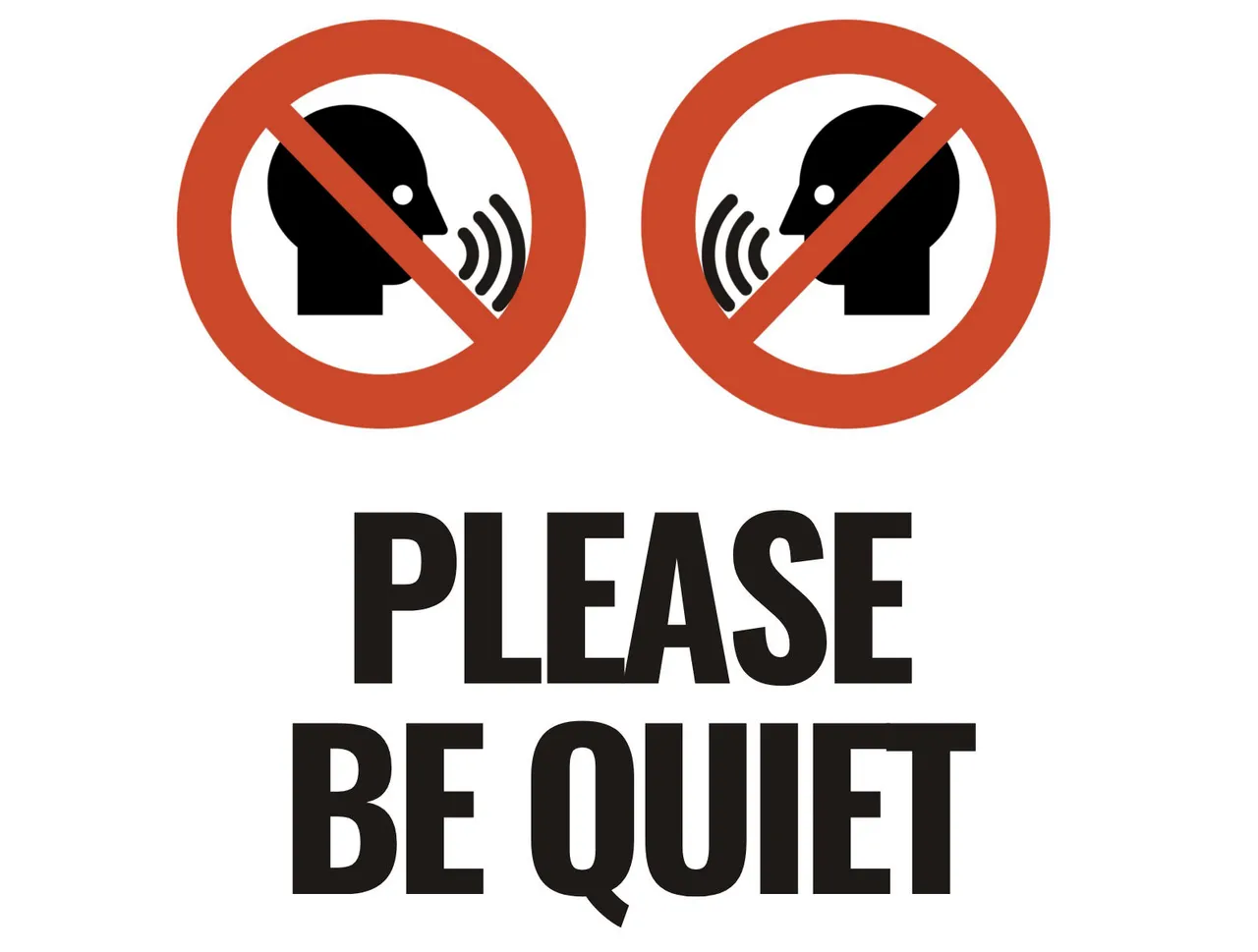There are people who naturally avoid conflict and arguments. I am not one of them. However, I believe that arguments hardly lead anywhere. How do I deal with them nowadays? Please join me in answering.

Discussions are usually born out of a difference of opinions, feelings and criteria. Because we are so different from each other, I think these differences will always exist, to a small or large extent, but I think they will be more frequent in the less important things. For example, I would not get involved in a discussion about whether the sky is blue or not. So it seems that these differences are part of adult life.
Now, because of arguments that get out of control, friendships, marriages and other types of relationships and affections have been lost forever. So it seems that when arguments get heated, everyone loses. That is one reason to avoid them, so as not to lose something valuable.
I think one of the main things that is useful to avoid arguments is self-control. And I don't mean control of our actions, but control of our thoughts, which will help to control our words. Sometimes, it is our pride or desire to be right that leads us to keep adding fuel to the fire when an argument has started. Many times I have fallen into this trap, and the truth is that I have not ended up with a good feeling, whether I am right or wrong. It's a strange, not very positive feeling. So is it worth using it at every opportunity?

Among those thoughts that help us channel our words and conversation is that there is more than one way to do things. Why insist that others must think and act as I do? Why should I insist that I must have the last word or the best idea? It leads one to question the acceptable ways of thinking, solutions and directions that others have. All this boils down to mental humility. It is when we do not think we are better than the other that we can help to put our ideas and concepts in their rightful place and we will be able to calm things down.
Sometimes there is no choice but to resort to silence, and wait for a more opportune moment to address the situation. And I am not referring to hostile silence, that product of obstinacy and arrogance to make the other person feel bad. Silence is rather conciliatory, sometimes accompanied by a hug or an ‘it's OK’. This is a difficult resource to implement, even more so when it is believed that the other person is not right, or that he or she feels bad because he or she is very sensitive. But this is a measure that has put out many fires.
Finally, apologising is an effective way to end arguments. What's more! It is even effective in preventing them from starting in the first place. Of course, it will only have an effect when it is sincere, and not just a formality. It has to be from the heart, because it will be heard and felt. Some brave people have apologised for things they were not even guilty of, but it is only in this way that they have managed to keep the peace.

Certainly, we must avoid letting arguments get out of hand, especially with the people we love most, in marriage, in the family, with friends, with neighbours, at work, at school.... Getting a reputation as a peacemaker is a beautiful thing. In my case, I keep learning when to keep talking and when to stop. There seems to be no other way to learn it but by experience. Sometimes it will go right or it will go wrong. But that's what part of life is all about. See you next time!



Hay personas que evitan los conflictos y las discusiones de forma natural. Yo no soy de esos. Con todo, creo que las discusiones difícilmente llevan a algún lado. ¿Cómo las afronto hoy en día? Por favor, acompáñame a responder.

Las discusiones generalmente nacen de una diferencia de opiniones, sentimientos y criterios. Por ser tan diferentes unos y otros, creo que éstas diferencias existirán siempre, en pequeña o gran medida, pero creo que serán más frecuentes en las cosas menos importantes. Por ejemplo, yo no me envolvería en una discusión si el cielo es azul o no. Así que parece que éstas diferencias son parte de la vida adulta.
Ahora bien, por culpa de las discusiones que se salen de control, se han perdido para siempre amistades, matrimonios y otros tipos de relaciones y afectos. Por eso, parece que cuando las discusiones se tornan acaloradas todos pierden. Esa es una razón para evitarlas, para no perder algo valioso.
Creo que una de las principales cosas útiles para evitar las discusiones es el autocontrol. Y no me refiero al control de nuestras acciones, sino a la de nuestros pensamientos, lo que contribuirá a controlar nuestras palabras. A veces, es nuestro orgullo o ganas de tener la razón las que nos llevan a seguir añadiéndole leña al fuego cuando se empezó una discusión. Muchas veces he caído en ésta trampa, y la verdad es que no he terminado con una buena sensación, sea que me den la razón o no. Es una sensación extraña, poco positiva. Por eso, ¿vale la pena seguirla usando en cada oportunidad?

Dentro de esos pensamientos que nos ayudan a encauzar nuestras palabras y conversación es que hay más de una forma de hacer las cosas. ¿Por qué insistir en que los demás tienen que pensar y actuar como yo? ¿Por qué debo insistir en que debo tener la última palabra o la mejor idea? Eso lleva a uno a cuestionar las formas de pensar, soluciones y direcciones admisibles que los demás tienen. Todo ésto se resumen en humildad mental. Cuando no nos creemos mejor que el otro es que podemos ayudar a poner nuestras ideas y conceptos en su justo lugar y podremos caldear los ánimos.
A veces no hay más remedio que recurrir al silencio, y esperar a otro momento más oportuno para abordar la situación. Y no me refiero al silencio hostil, ese producto de la obstinación y soberbia para también hacer sentir mal al otro. El silencio es más bien conciliador, a veces acompañado con un abrazo o un "está bien". Éste es un recurso difícil de implementar, aún más cuando se cree que la otra persona no tiene la razón, o que se siente mal porque es muy sensible. Pero esta es una medida que ha apagado muchos fuegos.
Finalmente, pedir disculpas es un recurso que es efectivo para terminar discusiones. ¡Es más! Es efectivo incluso para evitar de que apenas empiecen. Por supuesto, sólo surtirá efecto cuando es sincero, y no por simple formalidad. Tiene que ser de corazón, porque así se escuchará y sentirá. Algunos valientes han pedido disculpas por cosas que ni siquiera han sido culpables, pero sólo así es que han logrado conservar la paz.

Sin duda, hay que evitar que las discusiones se salgan de control, especialmente con las personas que más amamos, en el matrimonio, en la familia, con los amigos, con los vecinos, en el trabajo, en la escuela... Llegar a tener una reputación de pacificador es algo muy bonito. En mi caso, sigo aprendiendo a cuándo seguir hablando y cuándo detenerme. Parece que no hay otra forma de aprenderlo sino con la experiencia. Algunas veces saldrá bien o saldrá mal. Pero de eso se trata parte de la vida. ¡Hasta la próxima!
😀

FUENTES / SOURCES
Cover: Made with the free version of CANVAS || Portada: Hecho con la versión gratuita de CANVAS
Images: Shot with my Canon EOS Rebel t3i camera and edited with GIMP || Imágenes: Realizadas con mi cámara Canon EOS Rebel t3i y editadas con GIMP
Banner: Made by me in GIMP with my own images and free resources from the site pfpmaker.com || Banner: Hecho por mi en GIMP con imágenes propias y recursos gratuitos del sitio pfpmaker.com
Language: Post written in Spanish and then translated into English through DeepL || Idioma: Post redactado en español y luego traducido al inglés mediante DeepL